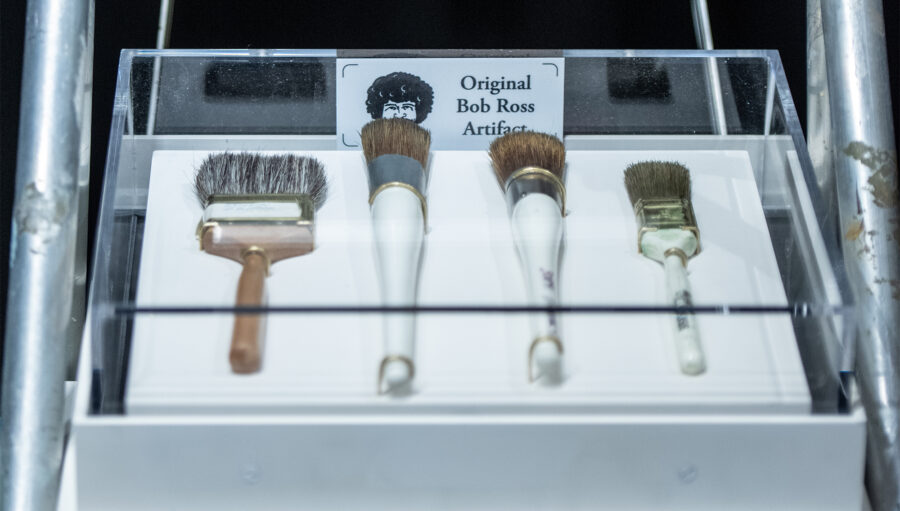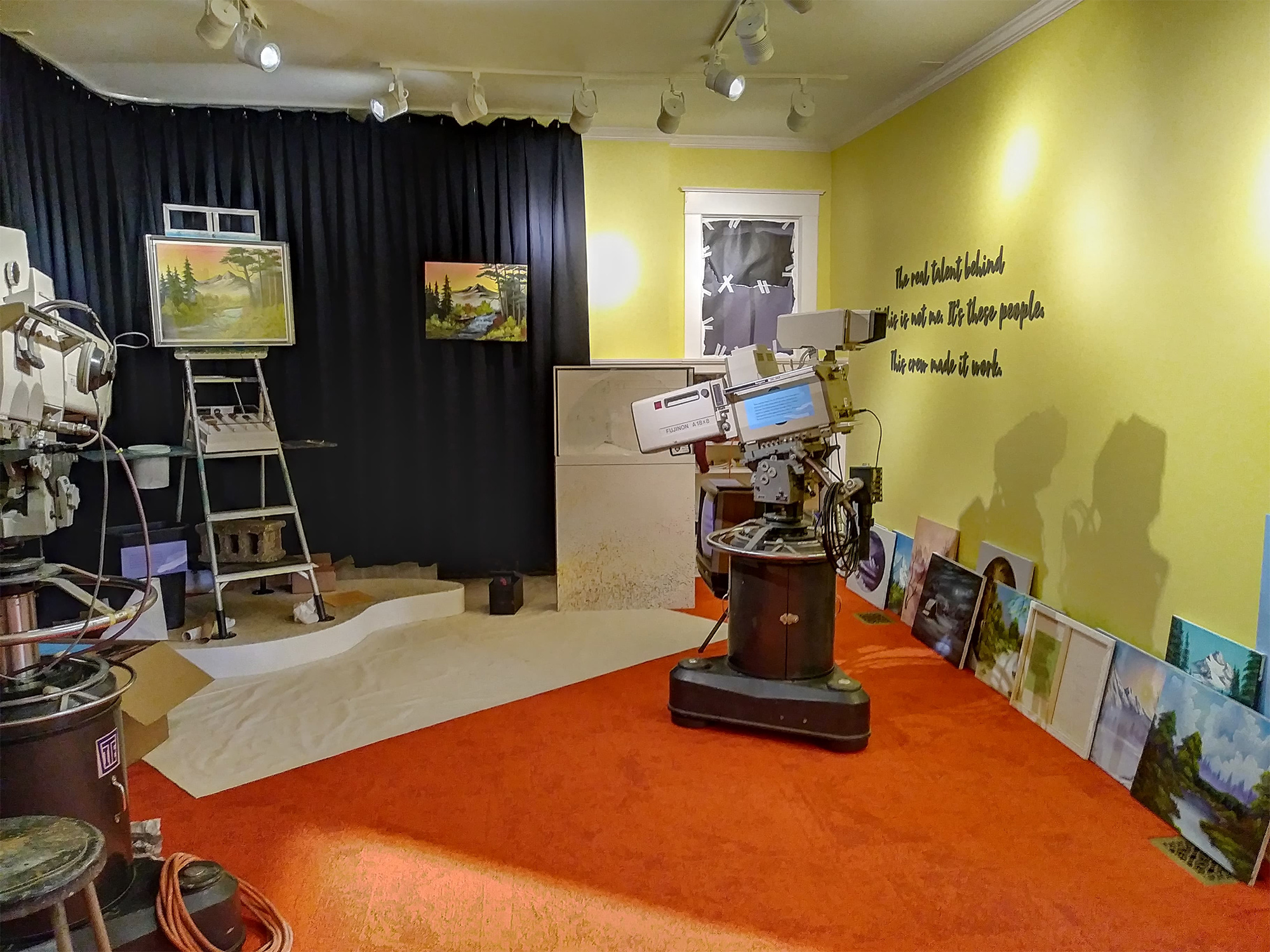Bob Ross is as renowned for the gentle encouragement of his voice as for his speedy technique: indeed, these very qualities are synonymous with the name “Bob Ross.” His revival in recent years has as much to do with the de-stressing effects of his permed onscreen persona as with our awe, ironic or otherwise, at his kitschy picture-perfect landscapes in under an hour. He’s become as much a saint of public television as Mr. Rogers and even more of an internet icon.
But unlike most other fandoms, the devoted lovers of Bob Ross have had no place to call their own. They might show up in Bob Ross cosplay at comic con. Yet no Bob Ross Con has made the scene. Leave it to Ross’s original Joy of Painting studio to fill the gap with a museum dedicated to the painting instructor. The Bob Ross Experience is part of a larger campus of buildings called Minnetrista in Muncie, Indiana, founded by the Ball family of Ball mason jars. It’s an “immersive exhibit,” featuring “original paintings and artifacts” and “inspiring visitors with Bob’s message of fearless creativity.”
What more could you want from a Bob Ross museum? Well, maybe a fully-online experience these days. For now, you’ll have to make the trip to Muncie, where locals pay $8 a ticket (kids $6, 3 & under are free) and non-residents shell out $15 ($12 per kid, etc). There may be nowhere else you can see Ross’s happy little trees in person. As Ayun Halliday wrote here recently, “sales of his work hover around zero.” Almost all of his paintings, save a few owned by the Smithsonian and a few private individuals, reside in storage in Northern Virginia, where an exhibit came and went last year.

Ross himself, who honed his method during short breaks in the Air Force, hardly ever exhibited in his lifetime; he was a made-for-TV painter with a small merchandising empire to match. Now, fans can make the pilgrimage to his creative TV home at the Lucius L. Ball house. Swoon over personal relics like his keys and hair pick and, of course, “the artist’s palette knife, easel, and brushes,” writes Colossal. “Many of the artifacts are free to touch.” A current exhibition at the Experience, “Bob Ross at Home” through August 15, 2021, showcases “a few dozen of the artist’s canvases, many on loan from Muncieans who got the works directly from Ross.”

Not only can you hang out on set and view Ross’s paintings and personal effects, but you can also, Artnet reports, “sign up for $70 master classes with certified Bob Ross instructors.” That’s $70 more than it costs to watch the master himself on YouTube, but if you’ve already made the trip…. One only hopes the instructors can channel what George Buss, vice president of the Experience, calls Ross’s best quality, his gentle fearlessness: “He takes what looks like a mistake and turns it into something beautiful.” And that, friends, is the true joy of the Bob Ross experience.
via Colossal
Related Content:
Watch Every Episode of Bob Ross’ The Joy Of Painting Free Online: 403 Episodes Spanning 31 Seasons
What Happened to the 1200 Paintings Painted by Bob Ross? The Mystery Has Finally Been Solved
Josh Jones is a writer and musician based in Durham, NC. Follow him at @jdmagness
Experience the Bob Ross Experience: A New Museum Open in the TV Painter’s Former Studio Home is a post from: Open Culture. Follow us on Facebook, Twitter, and Google Plus, or get our Daily Email. And don't miss our big collections of Free Online Courses, Free Online Movies, Free eBooks, Free Audio Books, Free Foreign Language Lessons, and MOOCs.
from Open Culture https://ift.tt/2GVdRr2
via Ilumina

Comments
Post a Comment